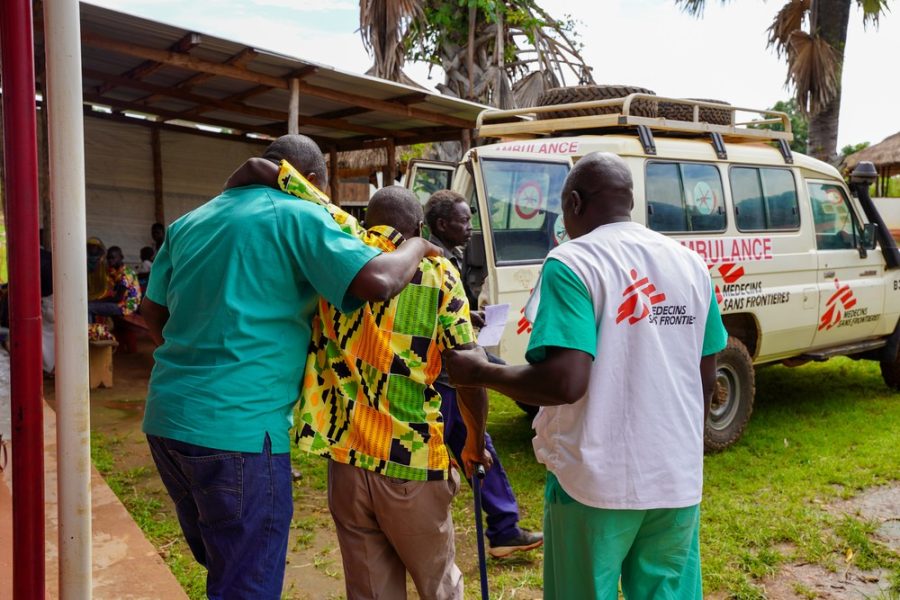
Medical charity, Médecins Sans Frontières (MSF) announced on Tuesday it has suspended all operations in Yei River and Morobo counties in Central Equatoria State for at least six weeks, citing targeted abduction of its staff and aid workers.
The suspension was triggered by the abduction of an MSF staff member last week. The incident occurred during a planned evacuation of personnel from Morobo to Yei due to deteriorating security.
The organization detailed that a four-vehicle MSF convoy was stopped by armed gunmen who ordered the team leader out of his vehicle and into the bush.
While the staff member was released hours later, the incident happened four days after another abduction of a Ministry of Health worker from an MSF ambulance on the same road.
“We are outraged by this targeted attack. Attacks on humanitarian workers serving the most vulnerable members of the society must stop,” says Dr. Ferdinand Atte, MSF’s head of mission in South Sudan. “While we are deeply committed to providing care to those in need, we cannot keep our staff working in an unsafe environment.”
This abduction is the latest in a disturbing trend of violence in the region. In the last three months, Morobo County has seen numerous attacks on aid workers and healthcare facilities, including seven separate abductions, arson, and the violent looting of hospitals.
The escalating danger forced MSF to reduce its activities in May. Now, it has suspended all work, including in camps for internally displaced persons.
“We demand accountability and concrete guarantees from the authorities and all parties involved in the conflict, including armed groups in Morobo and Yei River counties,” Dr. Ferdinand adds.
“It is crucial to ensure safe and unobstructed access to populations in need and to protect civilians and civilian infrastructure, including healthcare workers, patients, and medical facilities, before we can consider resuming our activities.”
The suspension leaves a critical gap in the area where residents are frequently cut off from essential services by armed conflict and limited infrastructure.
“MSF is one of the few medical organisations providing support to various healthcare facilities in this area. When such attacks occur, it is the local people who suffer the most, as it severely undermines their access to essential healthcare,” Dr Ferdinand adds.
In Yei River and Morobo counties, MSF supports four Ministry of Health facilities and runs mobile clinics, providing primary healthcare, vaccinations, and maternal and child health services.
Between January and June of this year, the organization conducted 14,500 outpatient consultations, 1,192 antenatal consultations, and assisted in 438 births in the area—all services that are now on hold.
The events in Central Equatoria are part of a wider, worrying increase in attacks on healthcare across South Sudan this year:
In January, unidentified gunmen opened fire on two marked MSF boats in Upper Nile state, forcing staff to jump into a river to escape. One staff member was injured.
On April 14, armed men looted MSF’s hospital in Ulang County in broad daylight, destroying property and threatening patients. The attack forced the closure of the county’s only functioning hospital, leaving over 150,000 people without access to life-saving medical care.
On May 3, two gunship helicopters bombed the MSF hospital in Old Fangak, Jonglei state, destroying the pharmacy. The helicopters also fired on the community, killing at least seven people and wounding 27, including four MSF staff members.

